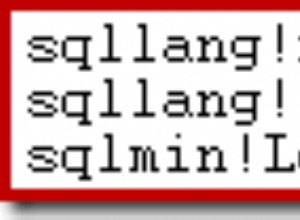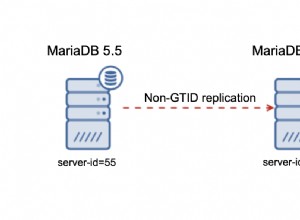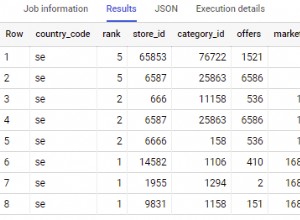Um método usa
lag() :select t.*
from (select t.*,
lag(status) over (partition by val, name order by date) as prev_status
from t
) t
where status = 'open' and
(prev_status is null or prev_status <> 'open');
Isso pode retornar mais de um resultado para um teste, se o status puder "retornar" para
'open' . Você pode usar row_number() se você não quiser esse comportamento:select t.*
from (select t.*,
row_number() over (partition by val, name, status order by date) as seqnum
from t
) t
where status = 'open' and seqnum = 1;
EDITAR:
(para dados ajustados)
Você pode simplesmente usar a agregação condicional:
select val, name,
min(case when status = 'open' then status end) as o_gate,
min(case when status = 'open' then dt end) as o_dt,
max(case when status = 'close' then status end) as c_gate,
max(case when status = 'close' then dt end) as c_dt,
from t
group by val, name;
Aqui é um db<>fiddle
Se você deseja reconstruir o
id , você pode usar uma expressão como:row_number() over (order by min(dt)) as id




